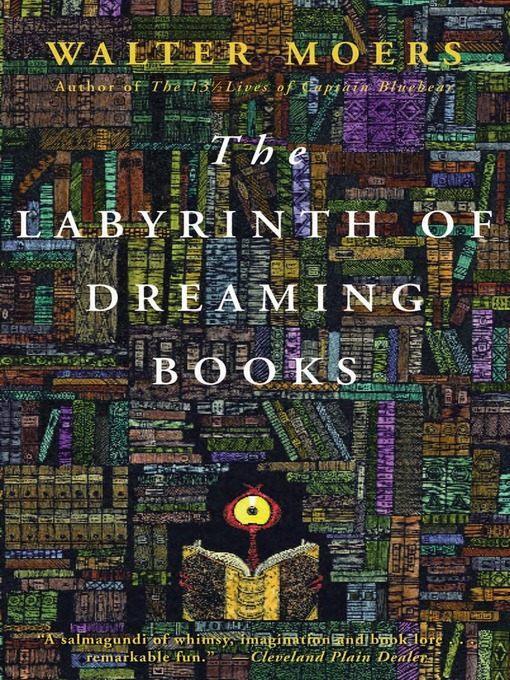
Labyrinth of Dreaming Books
A Novel
کتاب های مرتبط
- اطلاعات
- نقد و بررسی
- دیدگاه کاربران
نقد و بررسی

May 27, 2013
Optimus Yarnspinner's legendary success as a Zamonian author has caused him to become cut off from the Orm (the force of literary inspiration), a predicament he's quite unaware of until a mysterious letterâwritten in his own pedantic style and signed in his nameâsends him on a quest to Bookholm. The great city of books was burned two centuries before by the Shadow King, and has been rebuilt as a modern book metropolis. Optimus visited Bookholm's dark corners once before in The City of Dreaming Books but is still unprepared to discover the twisted Invisible Theater and the still-ruined Darkman Sector, a "blank space on the map" of the city. Moers's Munchhausen-esque yarn is en-hanced by his equally wild illustrations. Though much of the book overwhelms its readers with world-building, fans will enjoy journeying through Optimus's battle with darkness.

November 1, 2012
Biblionauts of the world, unite--German fabulist Moers (City of Dreaming Books, 2007, etc.) is back with another goofy epic from the land of living books. Apart from the occasional Minotaur, who doesn't like a labyrinth--especially one that leads through stacks on stacks of endless rare books? That's the setup of Moers' latest exercise in bibliofantasia, where the narrator turns out to have a certain distaste for the endless maze: "Even looking down the Bookholm Shafts makes me feel sick. I shall never again set foot in the Labyrinth--never!" Said narrator, whom Moers' constant readers will recognize, enjoys a position as "Zamonia's greatest writer," honored by statues everywhere and streets named after him in every city--and he's got an ego bigger than Mailer's as a result. Comeuppance comes in the form of a mystery involving a forged document and, yes, books on books on books. Moers clearly loves them, and while one imagines that his private library rivals Umberto Eco's, his vision of the perfect library is enough to upstage Borges', a fabulous underworld of petrified books, stalagmitic books, books overflowing from shelves, even a book that "was the size of a coffin," an eerie place of teetering bookcases, hastily built staircases, and of course, "beetles the size of cats and venomous albino rats" for good measure. The storyline is an afterthought in Moers' visionary adventure; Tolkien it's not. What matters are his engaging descriptions, zany scenarios and the weird critters that inhabit Zamonia, some of whom bear an uncanny resemblance to Barney the dinosaur. A beguiling, bookish entertainment that ends on a cliffhanger promising--well, the prospect of many sequels to come.
COPYRIGHT(2012) Kirkus Reviews, ALL RIGHTS RESERVED.

Starred review from November 15, 2012
Moers, the German comic-book creator and novelist, follows up his acclaimed The City of Dreaming Books (2007) with this sequel, set about 200 years later. Bookholm, the fabulous city destroyed in the earlier tale, has been rebuilt. Optimus Yarnspinner, the dinosaur-like creature who dreamed of being a writer, is now a best-selling author, so popular in fact that he now dreams of nothing more than a bit of peace and quiet. Taking refuge in Lindworm Castle, he soon receives a troubling communication from an unknown individual, a message that sends him deep into the new Bookholm to find out if the evil Shadow King really has returned to wreak more havoc. Extremely difficult to sum up in a few wordslike Jasper Fforde's Thursday Next booksthis one is full of literary allusions and wordplay, and it blurs the line between reality and fiction so much that such a line might as well not exist at all. In sum, the novel is a glorious, beautifully written (and translated) paean to reading, to imagination, to the tradition of storytelling. Featuring wonderfully imaginative places and creaturesOptimus isn't the only anthropomorphic being hereit should capture readers' hearts and minds from the opening sentences and leave much to ponder for years to come.(Reprinted with permission of Booklist, copyright 2012, American Library Association.)

























دیدگاه کاربران